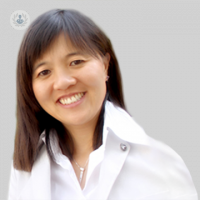Should I get braces and which type is best for me?
Written in association with:Braces are a really common orthodontic treatment, which is often carried out on children. However, more and more adults are realising the benefits of having a well-aligned jaw, both on their appearance as well as solving pain or discomfort caused by misaligned teeth. Dr Moira Wong, a leading orthodontist, talks about braces, their benefits and the different types available.

What is the best age to get braces?
The best age to see an orthodontist for an initial assessment to understand the growth pattern and issues that will require treatment for the best aesthetic result in an adult is 8 years of age, however, it is possible to have braces effectively in later years.
What type of braces are most effective?
Different braces are effective for different movements and different problems. This is dependent on correct diagnosis and matching the correct appliance to the correct case. Mismatching is when disappointments can occur.
Why should I get braces?
Braces improve the functionality of the bite which has a huge contribution to one’s quality of life. Not enjoying eating or feeling discomfort in the jaws on a daily basis becomes most distressing for some patients. The side effect of a correctly managed bite is a beautiful smile. A healthy bite with good guidance and healthy contacts with the biting pressure spread evenly across all the teeth is a beauty to behold.
How long do you need braces for as an adult?
How long you need the brace will depend on the types of tooth movements required to get you from A to Z. If there is a lot of correction to manage then this will take longer. If there is less to do then this will take a shorter time. Correct diagnosis is key to this stage of treatment. Quick treatments are often offered to inappropriate cases which can result in disappointment at the end of treatment.
How do invisible braces work?
Invisible braces can either be fixed to the inside of the teeth or can be in the form of trays that are clear and fit over all the teeth. The inside braces are not visible from the front and one can enjoy watching the tooth straightening process directly. The Invisalign braces are clear removable aligners that are not completely invisible and small attachments are placed on the outside of the teeth in order to allow the trays to move the teeth. Both of these systems can affect speech.
Make an appointment with a specialist if you are interested in finding out more about braces.


